�c���̑����̎ʐ^�W�@�@
�����E�吳�E���a�̃L���X�g���֘A���E���L�F�����E�����EHavard Classics�ȂNjM�d�ȑ������₵�܂����BLibrary
of Masugoro Itow, father of Mitsey Michiko Miki
���c���̑���
�́E�ɓ����ܘY(���a41�N�v)�̑����ʐ^���L�O�ɍڂ��Ă��܂��B�����A����s�Y���鏑�A�č��ڏZ�A���j�w�Z�Z��(�Q�n���E���s�����Չ)�Ȃǂ߂܂����B�N���X�`�����̉Ƃɐ��܂�A�_�w�\�����Ƃ��Ċw�̂ŁA�q�t����ɋ߂����݂ł����B�`���ɂ��čl���������l���������炵���A�����̑命���̓L���X�g���֘A�ł��B
�N���ƂƂ��ɎU��B�ȉ���2012/8/25���_�Ŏc���Ă������̂̎ʐ^�ŁA�قƂ�ǂ͊ς݂ł��B
�@
��(1)���L�F�Ȃ��@�@
���L�F�̒���͏��Ȃ��Ƃ�21���c���Ă��܂���(�ʐ^�E�Ȃ�)�B�u�C�G�X�Ɛl�ވ��̓��e�v�u���̉Ȋw�v�u�C�G�X�̓��������v�u�����@�L���X�g�v�ȂǁB���̂ق��ɖ|������悤�ł��B
�c���͖����w�@�ʼn��L�F�Ɠ����B���͖���40�N�����{������43�N�_�{�����B�c���͖���36�N���{����(���̌���u�����p���ȂɎc��_�w�\�����Ƃ��Ė��N�ԁv�����炵��)
�c�����c���������ނɂ��u���v�̎����������������܂��B
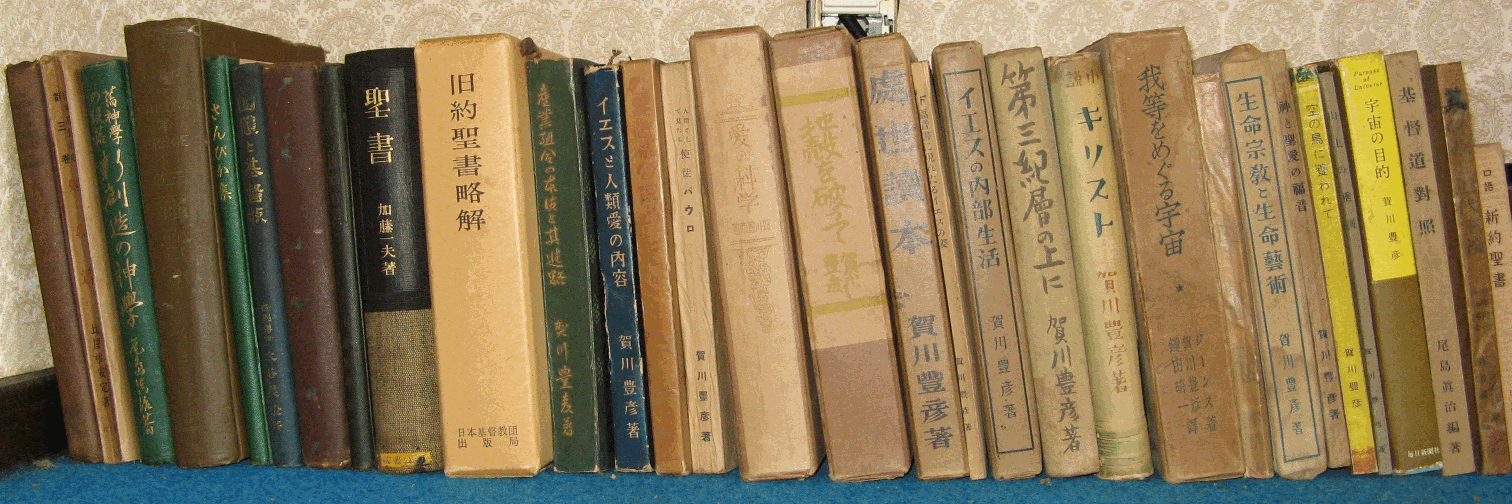
�ς�2012/8�@�@�@�@�@�@�u�̒��v�Ȃlj��O���[�v�̋@�֎��ɑ���������̂��܂܂�Ă����Ƃ̂���
��(2) �����A�]���̏W�Ȃ�

�ς�
��(3) �@����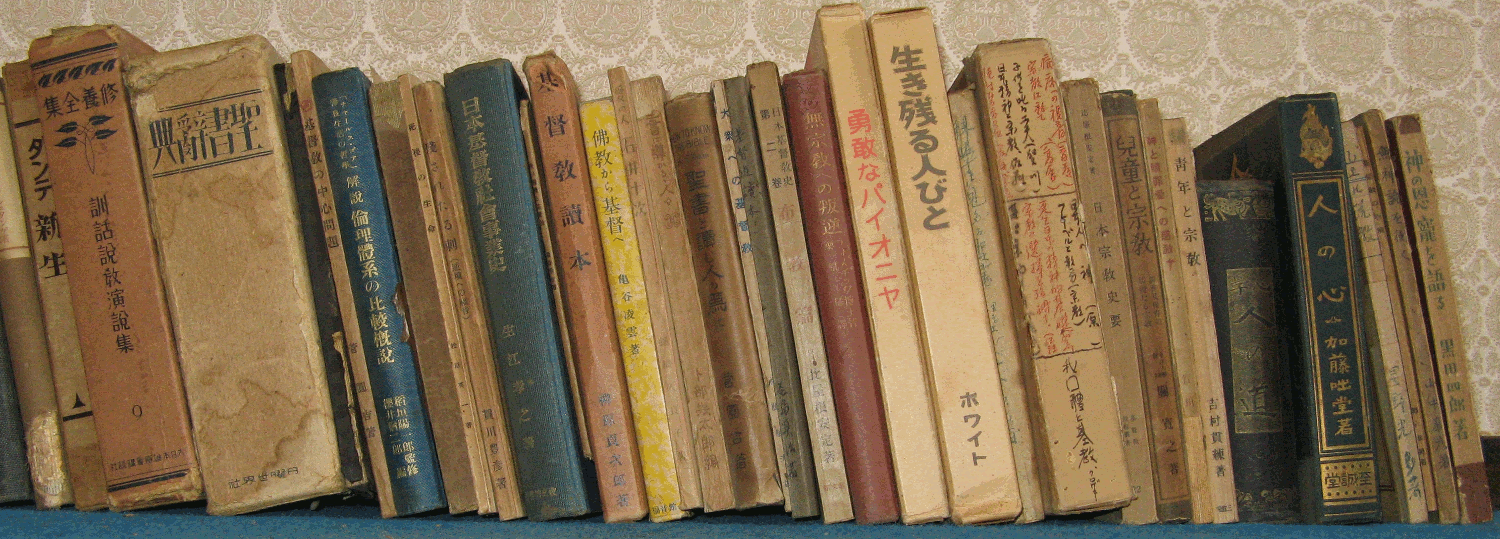
�ς�
�@
��(4) Harvard Classics ���E�ÓT���w�S�W �@�@�@�@�@�@�E���ɂ́u���蒉���v�Ȃǂ�
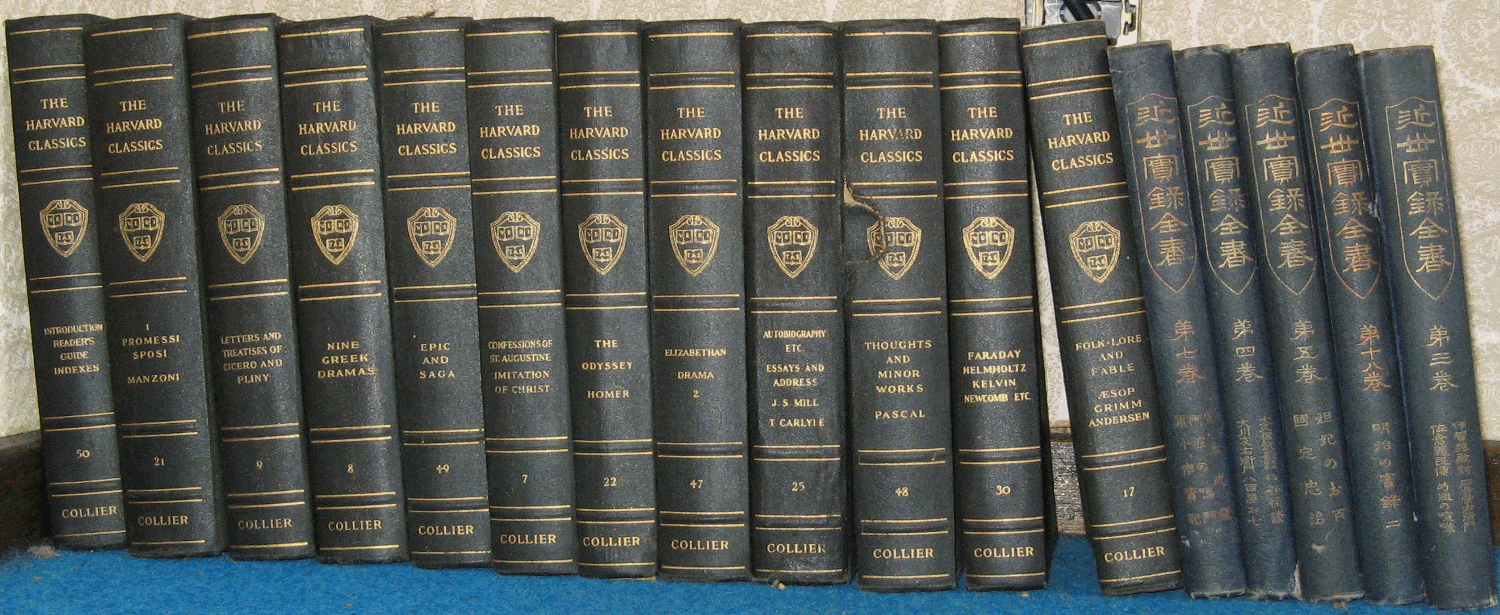
No.17�̂ݎ��̎茳�Ɏc���Ă��܂��B1909�N���Ŗ{ �@Harvard
Classics
�@
��(5)�펞���Ȃ�
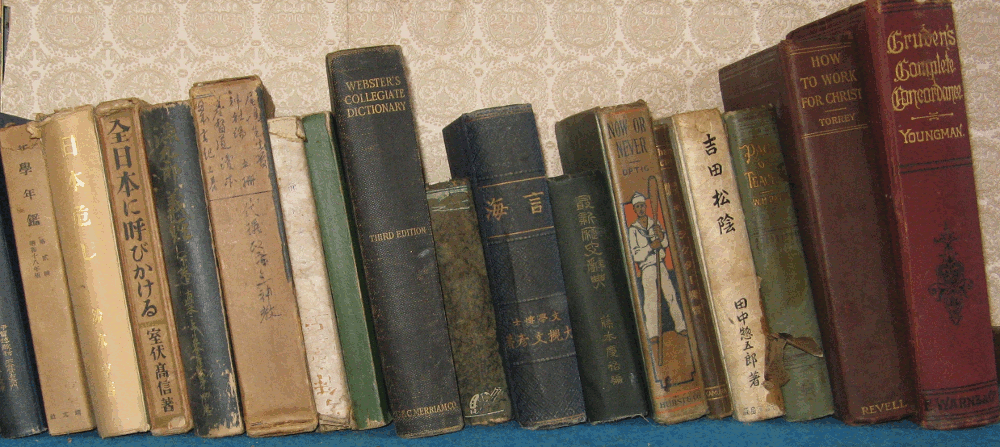
�ς�
�@
��(6) �����_�E�N�w�̖{�Ȃ�
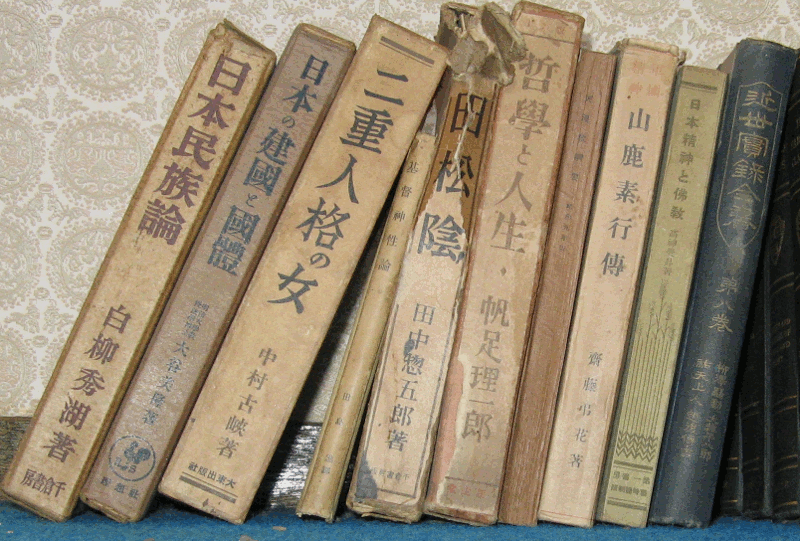
�ς�
�@
�@
��(7) �L���X�g���@���ŋ��@�@�@�@�@���s����E��Չ�̌�Փ��j�w�Z�Ŏg�p���Ă�������(�ɓ����ܘY���Z��) �@�ɓ��Ə���
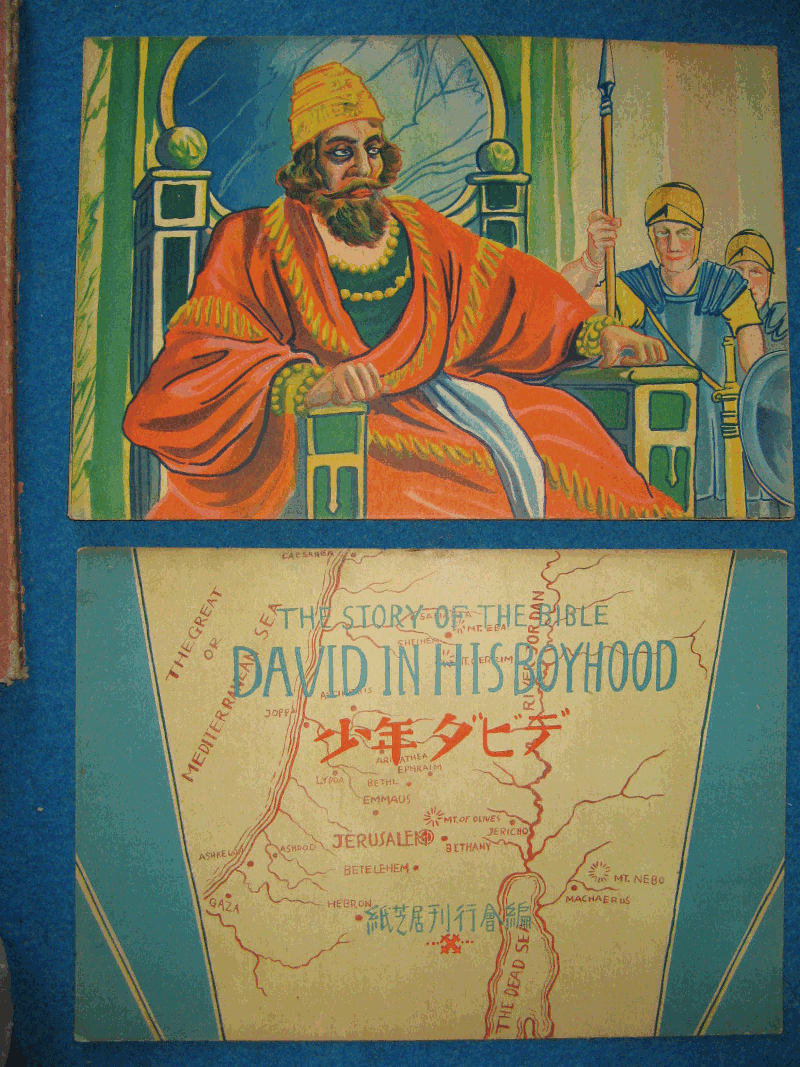
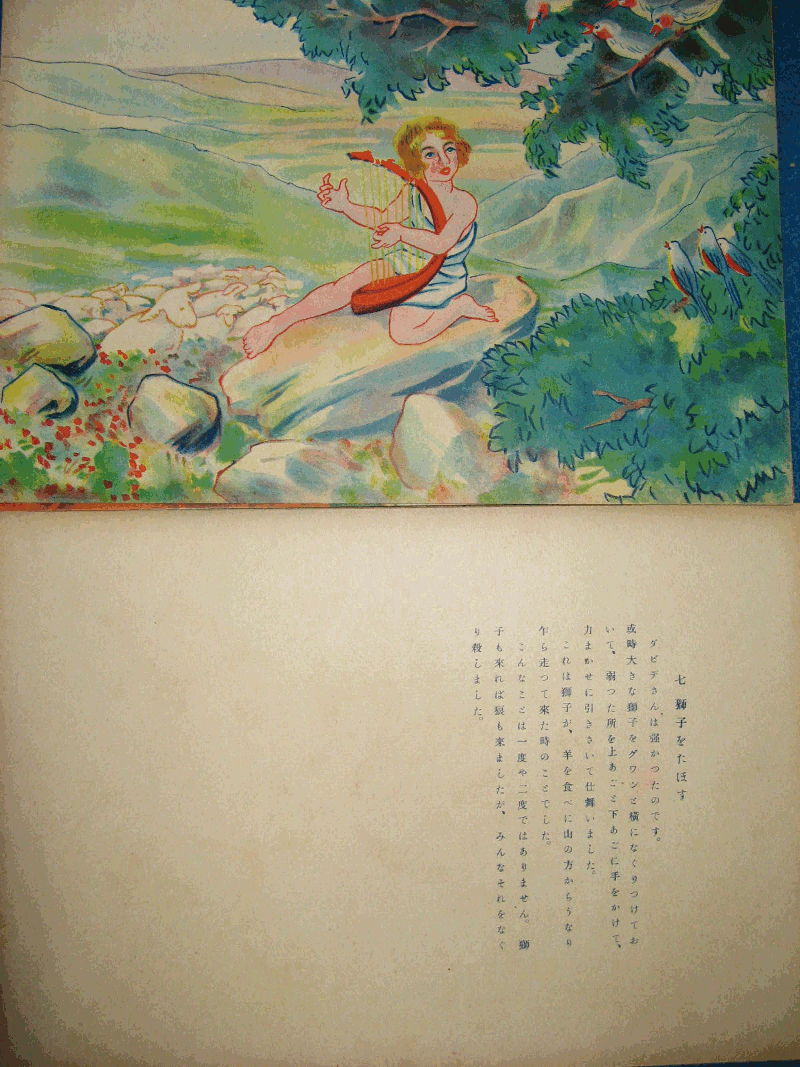
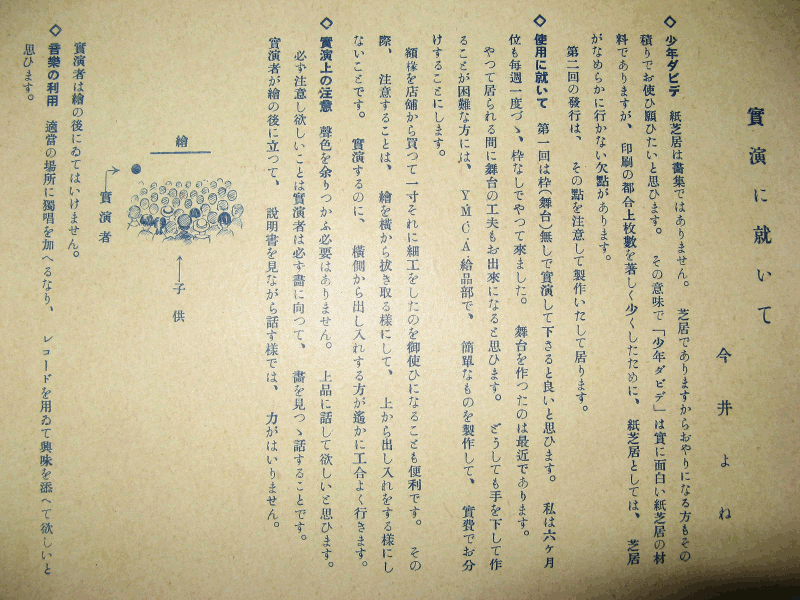
�������@�͉��L�F�Ɏt���A�u���ŋ����s��v��ݗ��@�@�@�@�@�@�@�@
�@
�@
��(8) �Q�n���̃L���X�g����̌����@�u��ы��E����v �@�@
�吳����́u��ы��E����v �@
�V�����̋����q�ł������u���؋`�~(�`��)�v����M
�@�@�@�@
�n���̋���̏��Ȃǂ����킵���@�@�@���s����E��Չ�̕����Ɉɓ����ܘY��e�����o��@�@�@�ɓ��Ə���
�Ȃ��A
�u��ы��E����v���s��o���ɂ����1984�N�ɕ�������Ă���
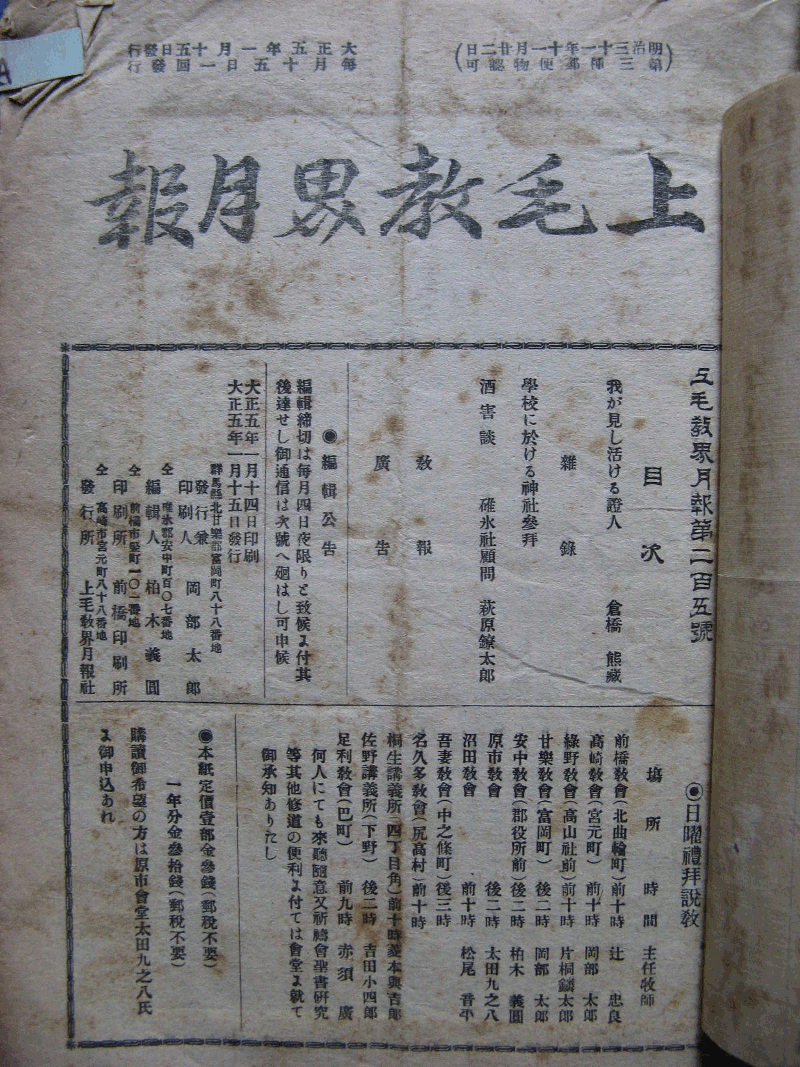
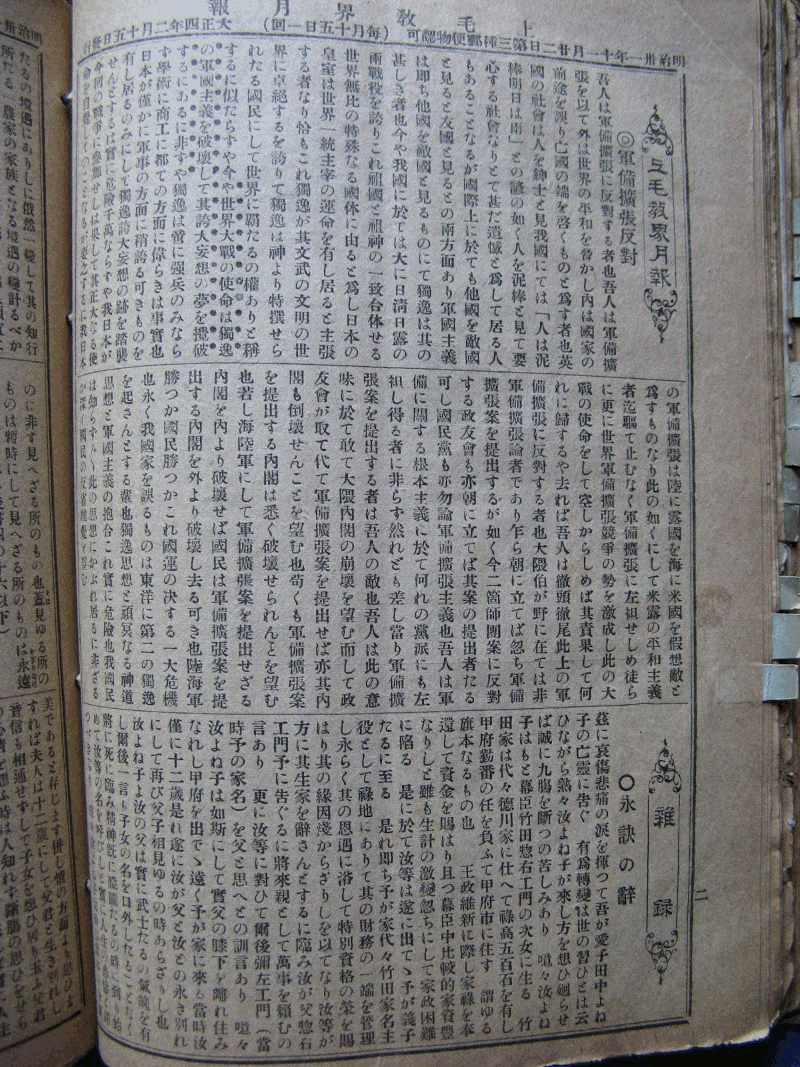
�E���ɃC���f�b�N�X���t�����Ă���
�@
��(9)�c���̒���(���q)�@�@���Ƒ������@���z����̏��a14�N�ɏ���������`����
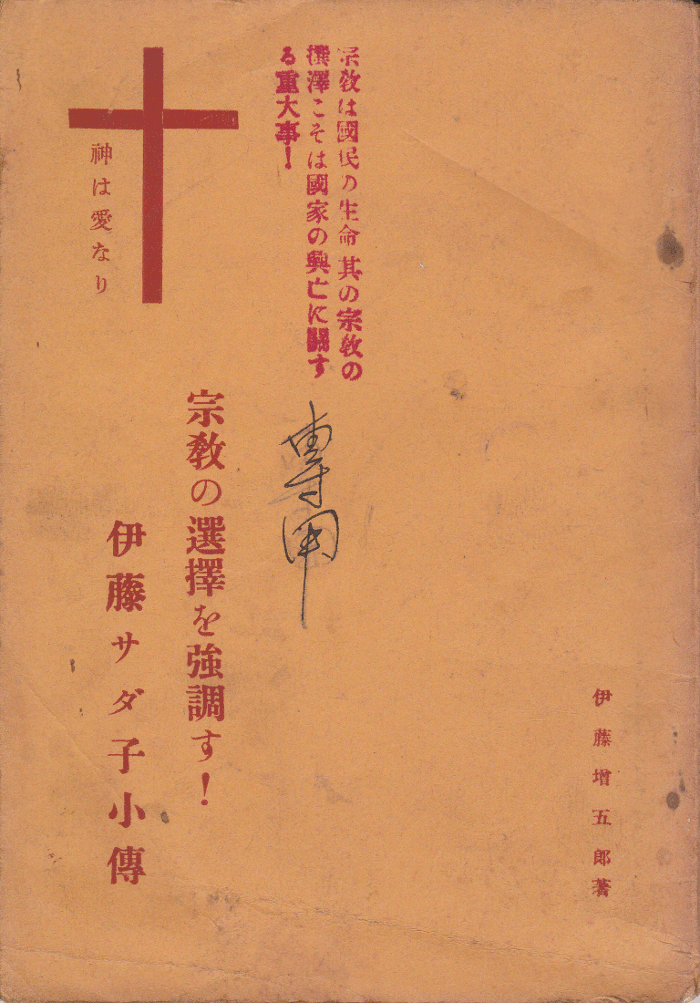
�ɓ��Ə����@�@�@�@�@�ɓ����ܘY�{�l�u��p�v�Ƃ̏������݂�����
���u�ɓ��T�_�q���B�v�̕������ȉ����p
p.2 �u��̎q�������萂����Ⴊ�䂪�q���ɁA��棂�n�ʂ����ׂł͂Ȃ���������X�����ɗ@���ꂽ�l���~�̐l�Ƃ��Ēp������ʐl����{�����āc�B�c�a���c�~�ׂ̈ɓ����ċ��邩�Ɩ��ꂽ�̂ɛ����鎄�̕Ԏ��ɑ�ϖ������āc�v
p.3 �u���j<���ܘY>�̉ŏ����ŋ��c�v
p.4 �u�c�����ɂ����܂킵���x���ɔƂ���ċ����ƕt���̍ȏ��O���c�́c�e��e�ނ̎҂��������͂�c�Ύ҂��Z�������ւ��Ȃ����c�B�c���Ɛ₽�ꂽ�ȏ㉽�̉����䂩����Ȃ��͂��̕a���������ĉ�Ƃɂ�d�ւ�X�ɗ{����v�����鎖�ɐ�Î^�����Ă��ꂽ�c�B�c�܂��Ȃ����V�v
���u�@���̑I���v�������ȉ����p
p.7 �u���ߕ��j���ȏ@�������Ȃǂ�v���ċ���ׂ����łȂ����͕S����S�����m���ċ��邪���Ƃɓ����I��b�𐘂���Ɖ]�ӏd�v�ȐE�������@���ɂ��āc�v
p9 �u�����đ��~�����R���鋷�������~�ł����葽�~���I�̎҂ł����肵�Ă͂Ȃ�Ȃ��̂ł���܂��B�v
p.10 �u�@���I�V���͕v�ꂪ�ǂ�Ȃɍ����ł��Ă��c�B�c�܂��đ��Â���B���I�ɖ��ᔻ���ɖ��ߘ҂��`�X�ɉ����Ă͑������̕ۑ��J�l�ȏ�̎���F�ނׂ��ł͂Ȃ��낤�c�B�c�@���I���m�̒v�����ł��č����̉ț{�E�Ɍ��o����ׂ����ۂł͂Ȃ��v
p12 �u�ț{�I�ᔻ�B�c�@���c�����Ƃ��Ă͐悸�m�ł��鐢�E�I�ɒ������j��L��������̉ț{�v�z�Ƒ��������Ă����`�Ձc�𖾗ĂɎ����҂ł���˂Ȃ�ʁB�s�{�ӂȂ����ݘ҂̏@���ɂ͂������������`�Ղ̌���ׂ����̎҂ƂĂ͂���܂��܂��B����̓��{���w������@���́c�B���E���j�ɐ[�������L����@���͕K���⑴�����Õs�Ղ�����������ɑ���Ȃ��B�v
p.13 �u���{�ݘ҂̏@���ɉʂ��ēN�{�I�ɂ��ț{�I�ɂ����E�l�S����������ɑ��邾���̑��������j��b�Ƃ����������~�{����ւċ����ł������B�v
p.16 �u�������a�I��ʂ��đS�����ɌĂт����ċ��鏔�@�������̋V���ł͚����̏@���S�Jᢂɉ�����̊��҂��������邩�܂��Ƃɂ��ނ����^�O�������͂��܂���܂���B���l���͓�����~�ނȂ����ł͂��炤���c�v
p16,17 �u�\���˂Ȃ��@�����蜂͏\���ˏ@���̊�ւɗR�ĐS�Ȃ炸���͂���ƌ���ɖ\�I����Ă��܂��B�c�m�ł����~���V�O�Ɛi�������関���V�Ƃ�L���c�R���ꂩ�琶��錒�S�Ȃ�l���V��������̂łȂ���Ȃ�Ȃ��B������V�O����b�ɂ��Ă���Ɋm�ł���M�������Ȃ��@���͝БR�И���P������ܔ\�������Ȃ��Ǝ��͊��ւĝЌ����Ĝ݂�܂���B�Ɠ����ɐ��E�̐��������j����ĂɃA�t���J�ɓ�m�Ɉ�x�Ɏx�߂ɂ��Ă͖k�ɕX�̚��Ɂc�B�c����ɗR�č����̒��x�ɂ܂ŋ������鎖�̏o�҂����������ɏ\���ˏ@���̊�ցv
p.18 �u������m�́u�Ø҂̐鋳�t�̒��ɂ͍E�q�ʂ̐��l�N�q���V�R�ɂ���v�Ɖ]���ċ���c
p.19 �u���́u�ǐS�@���ɘ҂��܍߈��̍��{�������m�M���隠���łȂ�������ɑ嚠������̎��i����ւ��v�Ɖ]�ӗl�ɒ��S���玂�q�Ⴗ������搶�̑��܈Ђ���咣�v
p20 �u���ɚ��Ƃ��v�ӂ̎u�m�����Җ������̏�M�ɔR���҂͈���������ߋ����݂̗��j��ʂ��đ��D�z�����z����������暖�����ċ���ǐS�@�� �\ ��� �\ ������ĉ䚠���~�E�̔e�҂��炵�߈ȂĈ���������v�V���{�����݂������Đ��E�w���̔C�����c�Ă����c�c�̈Е��𐢂ɂ����炷���`�Ȃ隠���Ɖ]�Г���Ă���܂����v
�@
�@
�@
��(10) �����ފe��@�@�@�@
���������ȂǃL���X�g���֘A�������@�@�@��ǂł���M�d�Ȏ����@�@�@�ق��Ɏ��`�炵���������e���@�@�ɓ��Ə���
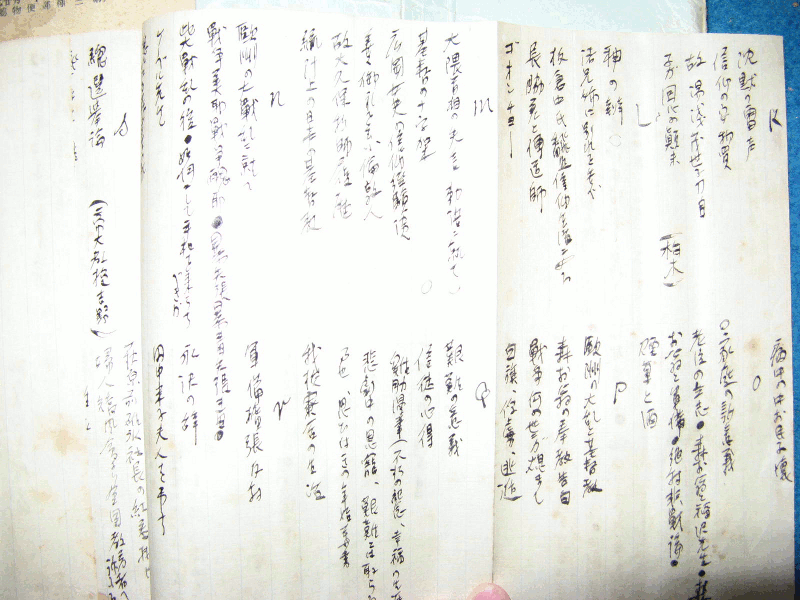
�@
��(11) �I���E�̗w��
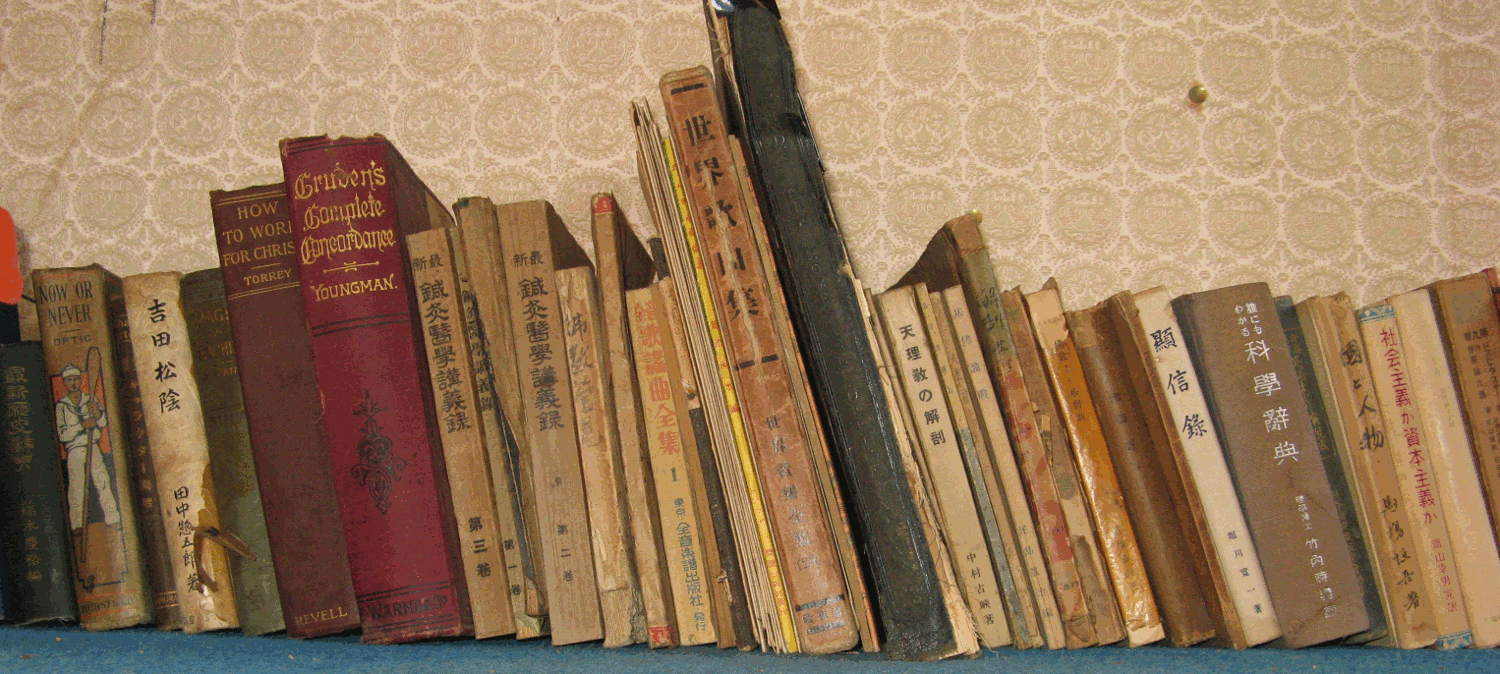
�����ς�
�@
��(12) �p�ꉉ���@�A�H�m���Ǝq�Ȃ�
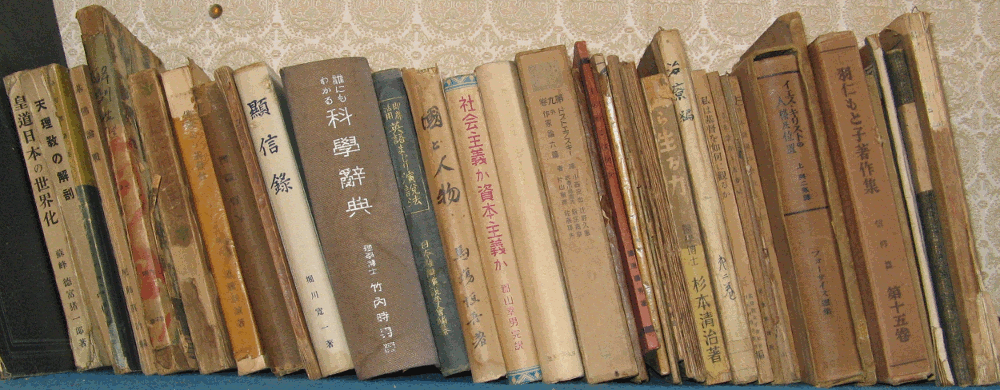
�ς�
��(13) Webster
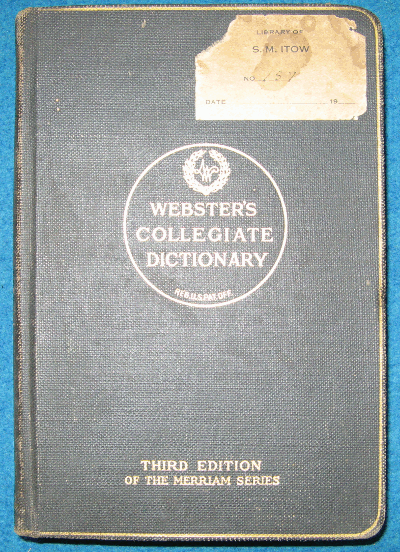
�ς�
��(14) �u�_�����ގ҂ցv �@���q
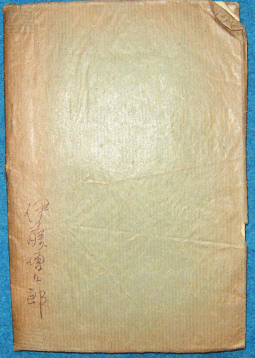 �@
�@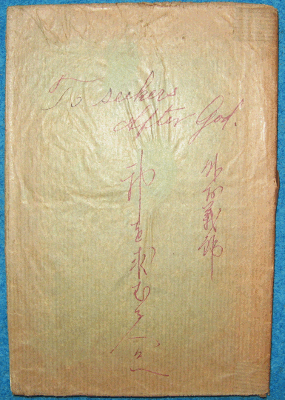
�ς�
�@
��(15) �g�����N�@�@�@�����m����q�H�ʼnו����^�@�@���a�l�N �X�D�t�m��
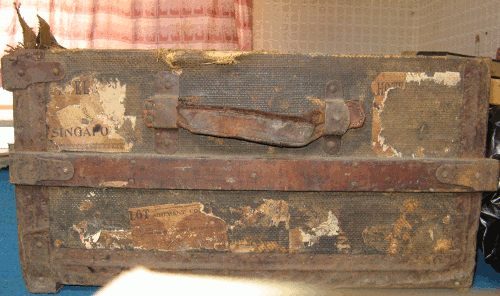
�@
�@
��(16) ���̂ق��@
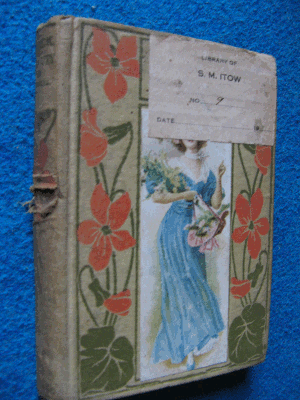 Black Beauty�@�ɓ��Ə���
Black Beauty�@�ɓ��Ə���
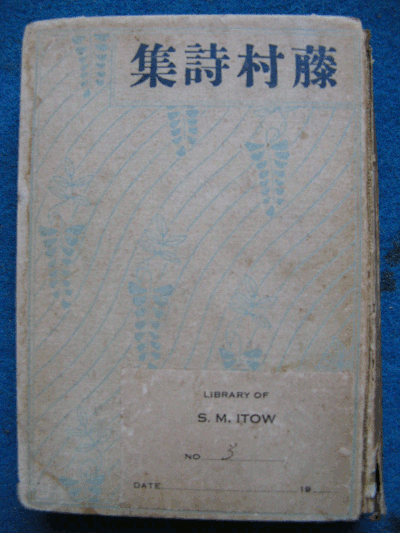 ���蓡�����W�B�����͖����w�@�ő��y�@�@�ɓ��Ə���
���蓡�����W�B�����͖����w�@�ő��y�@�@�ɓ��Ə���
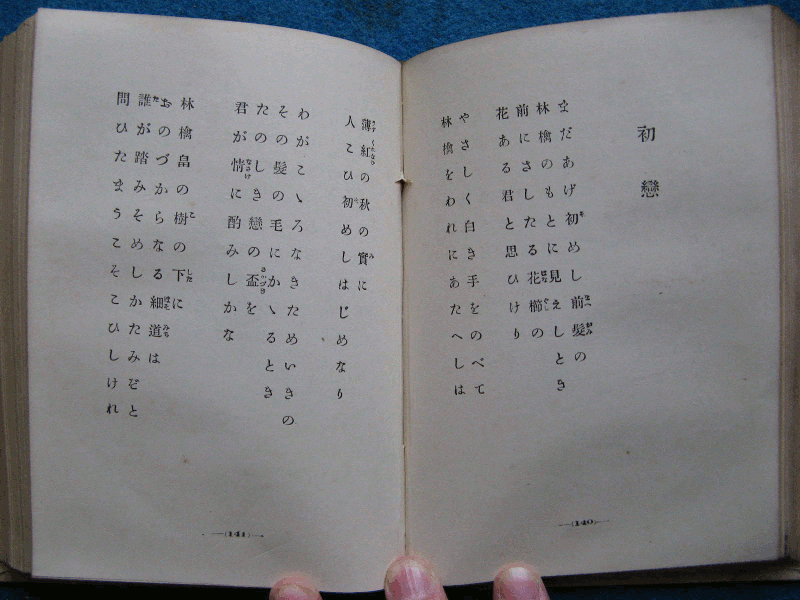
�@
�@
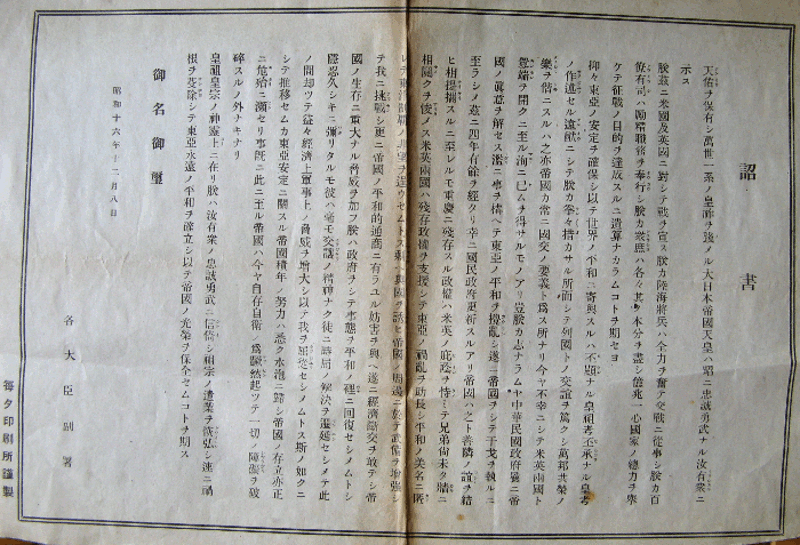
�J��ُ̏��@�ɓ��Ƒ�
�@
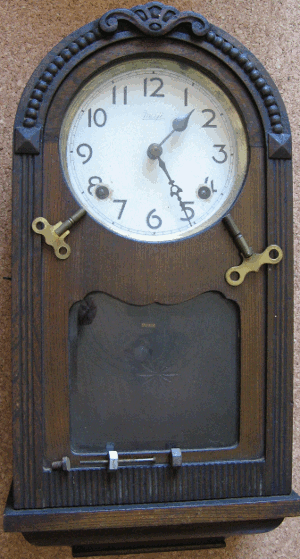 �ɓ��Ƃ̕NJ|���v�̂P�@�������v��
�ɓ��Ƃ̕NJ|���v�̂P�@�������v��
���ɓ����ܘY�@�N�\
�ɓ��T�_�q(���ܘY�̕�)�@�V�����̏m?�ŃL���X�g���k�ɁB�����͂��V���ɓ��Ƃ̋߂��̓���ʂ�Ƃ��͂��قǕΌ���������
1860 �]�˖��{�̌��Ďg�ߒc���n���C��`
1865�@�ď��l�����{����̈ږ���v���@�n���C�̃T�g�E�L�r���Ȃǂł̘J����
1868(�������N)�@���̏W�c�ږ��A��150�l���n���C�ց@�@
1869 ���{����J���t�H���j�A�B�֏��̈ږ�
����15�N(1882)1��15���@���ܘY�������̉Ƃɐ��܂��A���j
�@���̌Q�n�������s(�V�����䂩��̒n)�@
�Ƃɂ͍]�ˎ���̈Ꝅ�̐Ղ��c���Ă���(�˂Ȃǂɔ_��Ő������)
�����̖��͋��ܘY���������̂��ォ�����̂ŁA��ɉ���
�Q�n�������蒆�w�Z�������Z(1904-)�@���Ɛ��@���ѓ�ʁ@
�@���w�Z�ŋ�����N��
�㋞���A�����w�@�@�@����36�N���{����(���̌�u�����p���ȂɎc��_�w�\�����Ƃ��Ė��N�ԁv�����炵��)
���s�ց@���u�Б�w���@
�݊w���A����s�Y���̏���Ɂ@
26�@�n���C�ɎO�N�Ԕh�������@�@�M�@�ږ��ւ̓��{�ꋳ��@�@(�z�m�����v7�N?)
(�v�O��)
�吳4�@(1915, ��32��?)�@�@����
�u��ы��E����v�@�吳4/1/15p8�ɂ��Ɓu�ɓ��C�ܘY�Z��ɂĖ{�����Ȃ��ė䑺�{�����A�g�����֓����Ƃ��ĉ�����T���ܘY�Z�̓��j�����s�ӎ^���F禱�q�t�̏����̌��X�̉��t����I���ĐV�Y���铯�Z�͐e�ʒm�l�ɑ����䑺�ɕ����ꂽ��v
�@
�č��ڏZ�@�v25�N�ԁ@�V�A�g���Ȃǁ@
1922�吳11�N1/13 �@��(�������ݍ]�A���Ȃ�N���A���Ւ�����쎁����)�Ƃ̊Ԃɒ��j�������T���t�����V�X�R�|�X�g�X2225�Ԓn�ɂďo��
���j(���S)�A����= Michiko MIKI
����
�@
1930���a5�N�A���@�@(���a4?)
�A�����J���X�D�t�m�ۂɏ�D�A�A��
�T���t�����V�X�R���i�k�čq�H�j���T���t�����V�X�R�����l���@�����͐�������
���{�O�ƒʐM�Б��x��(�L�����)�Ζ�
����̈ɓ������Y�o�c
���a14�N���݁@���s�k���������㒚�ڔ��Ԓn�ɍݏZ�@�@
�I���@��(����???)�J�ƁA�u�ɓ��ĐM���É@ �����d�����p�v�Ƃ����Ŕ��c��@
1937�@�����@�l���ɂ��Â����A�������͐�(����ɂ�)���w�Z����
�����t�@�S�H��(�l��)
1941 �����@���{��C�R�H�����������ۋΖ����Ȃ��瓌���d�M�Z�p���w�Z���Ɓ@1943�C�R�ʐM�w�Z�q���ȑ��ƁA�C�R�����@���T�C�p���B�Ӓ��ɂȂ���n�ցB����ɃT�C�p���ʍ�
���a19 ���@�@�@�����N�Ё@�@�@�o�c?
�����͉����A�C�R�ց@�@���ܘY�͌Q�n���E��ՂA���A�_�k�A�s��
1946 ��Ղ������́u�ɓ����a�I�X�v�J�Ɓ@�@�u����̕����̐�[���s���v���̂�����
1954 ���Ɛ����H���J�n�@1970�O�X�S�����w��X
1947/12/21 �����A ���s����Ŕ��ؔ��Y�q�t������
�Ό������삵�Ĕ̔��@�@�@�����������D��
���a26? ��ʎ��́A�r���s���R��
�M�ɗ�ށ@�@�e���ʂ̕����������A���e�@�@���s�Ɏ��炸
�@�@
���s����̌�Չ�E��Փ��j�w�Z�Z��
�@
���Z�F�p��A�ڔ��A�o�C�I����(�����ɓ��ꂽ),
�s�A�m�A�I���A���̗����H���
�����F�w�@���̑I�����������I�@�ɓ��T�_�q���B�x
���a41�N(1966)11�� �v �@���V��9���@���N85 (��84?)
�@�@
�D���ȋȁF �u�t�̊C�v(�{�铹�Y�A1929)�@��u�ɂ��A���ܘY�����ł͂��̋Ȃ𗬂�������(�o�C�I�����t�҃��l�E�V�����[�K���{���ⵂƍ��t�������R�[�h�炵��)
2012/8 �Ɖ���̂̂��߁A�����̑啔������
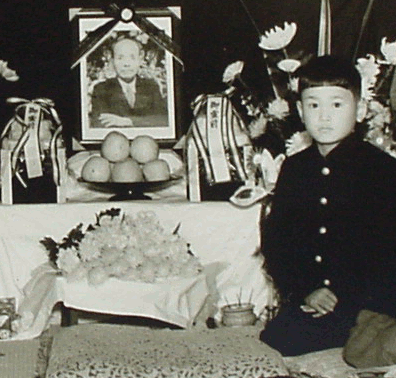 ���ܘY���V�ɂ�
���ܘY���V�ɂ�
�{�l���e���ꓯ���ĂъA�Ō�̈��A���ς܂��A�O����ɖS���Ȃ����B
���f�̈�t���u����イ�ł��v�ƌ����A�����z����̏�ɒu�����B���w���̎��͔��z�̈Ӗ������܂��������ł����A���e���Ɂu�����������͐Q�Ă���́H�v�Ɖ��x���q�˂����A�N���Ԏ������Ȃ��B
�����c�����S���Ȃ����̂Ȃ�A�͂����肻�������Ăق����Ɗ�������A��l�����ɂ͔��z�ŏ\���炵�������B
���̐S�̒��ł́A�����肪�܂Ԃ����̂ŕz�������ĐQ�����Ă���Ƃ������\�����l�����Ă������A�u�����������͐Q�Ă���́H�v�ɒN���Ԏ������Ȃ����Ƃ��������A�ǂ���玀�̍��}�炵���Ɗ����͂��߂��B�₪�đ����̏������n�܂�A���z�̈Ӗ����͂�����Ɨ��������B
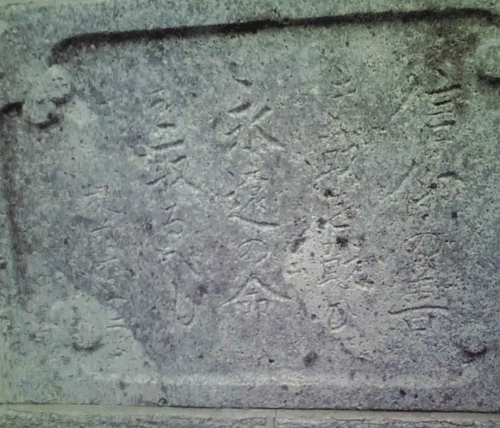 �ɓ��ƔV����B�����̈�߂������Ă���
�ɓ��ƔV����B�����̈�߂������Ă���
�@
�����ܘY�@�����@�����œǂݏグ

�@
��In Memory of Mitsey Michiko Miki
In loving memory of my aunt Michiko, a long-lost daughter of Masugoro Itow
�@
��Family tree �ƌn�}�@ �č����S�Ł@Incomplete,
as of 1992 based on information provided by Michiko Miki, others
Masugoro ITOW ================= wife: Sumie Itow (later Sumie Ohye)
*Itow can be spelled as Itoh or Ito.
son: Masumi ITO-------------- his wife: Kesae
daughter: Mitsey Michiko MIKI (deceased 1996.2.18) St. Gardena, CA USA
grandchildren in Japan: Toshiharu Michiyo�@Shinji (author of this website contact)
�@
Yasuo Tanaka (Y. Clifford Tanaka, Masumi cousin in South Pasadena CA)
�@
Sumie OHYE======Fred M. Ohye
��]�̎q����Michiko�����̓d�b��^���ɂ� �ꂽ�̂�Pat Rose=�L�N��]���[�Y
�@
Michiko's first child, by first marriage: ����Catherine Jono missionary to Osaka in 2001 �vTommy Jono
Michiko Miki's husband: Ubukinokami (Ubuki/Urb)
Daniel Kei Miki (Masaru Sr. Yonemura) Masaru Cathy Kikue Tim Muneo Sueko
��Letter to Mitsey Michiko Miki from S. Ito, sent just
before her arrival in Japan AIR MAIL
March 29, 1992, Tokyo
Dear Aunt Michiko,
I hope this letter finds you in the best of health. My name is Shinji Ito. I am the second son of Masumi Ito. I am the one who startled you by phoning your home on the morning of Oct.16, 1990, and announcing, "I am your nephew in Japan."
My father took away my 1975 family photo and sent it to you. I'm the one with the mustache. I was 17 then. I no longer have the mustache.
My father has sent me a copy of your letter dated March 6. He asked me to accompany him when he goes to Narita airport to greet you. We look forward to seeing you.
The purpose of this letter is to give you some orientation of what things would be like when you come over. The reunion of you and Masumi, I presume, would be a historic event for both of you. It is also a big concern for me. You said in your letter that you have "very mixed emotions" about the reunion. It should be a joyous occasion, yet it could turn out to be a bittersweet one, because of the wide gulf that fate and time have created between the two siblings. They use different languages and were brought up in totally different cultures and environments. I realized that as I talked with you on the phone in 1990.
In my view, misunderstandings, although slight ones, have already occurred between you and your brother. You are writing to him in English. But as far as I know, he no longer understands this language. He could not decipher your last letter, and sent its copy to me for translation. Most American citizens take it for granted that foreigners understand English. For them, venturing into the Japanese countryside and finding themselves unable to communicate at all with the people can be unsettling.
If my memory is right, during our phone conversation, you told me you can write hiragana, and I recommended that you write in hiragana when you send letters. My father reads English alphabets, so you can use them to express your Japanese writing. (Example: Kon-nichi-wa.) But please print.
My guess is that Masumi has led you to believe that he understands English. If he did, he had to do so because he has older-brotherly feelings toward you: He feels he has to be in a position to protect the little sister, and cannot admit that he does not know certain things that you know.
Now, after six decades, blood and childhood memory have finally brought them together. My wish is to help my new-found aunt as much as possible to soften the cultural shocks that she may go through, so that the reunion would be an occasion worth the sixty-year wait.
The Ito family is reserved and not so sociable. After the first few hours of the reunion, conversation may die out, but that does not mean people don't want to talk to you any more. It will only mean you were accepted.
Most Japanese are reserved, in comparison with Americans. Many Japanese use non-verbal communication and simply know what others feel and think. My family is especially quiet and do not like to show emotions. An exception is Masumi's first son, Toshiharu, who is talkative. I and my father rarely utter words to each other, and the silence is comfortable for both of us. And I probably won't tell him I wrote this letter to you. Masumi does not show emotions much, and he may seem uninterested in things.
If you watch sumo matches on TV, you notice that the wrestler who won do not look happy. But everyone knows he is happy.
The Japanese also do not use physical contact as much as Americans do, especially in public. So if Masumi should look inhibited at the airport, please don't worry. He is very, very happy to see you. If you were the one to have stayed in Japan and Masumi the one to stay in the U.S., the situation would have been the reverse. In this rural situation, you would have been brought up as an extremely quiet person by U.S. standards.
My father never stopped thinking of you on the other side of the Pacific. When I was little, my father once in a while took out his treasure, an old photo album, from deep inside the cupboard. It contains a few photos of your father, Masugoro, and your mother. It also contains two photos of you.
One black-and-white photo that he has had from long time ago is 2-year-old Michiko sitting alone at a doorstep and staring into the air. This photo -- for decades it was the only photo of you for us -- has been the fundamental image that we had of you. My father says the photo was taken at an uncle's house. He remembers seeing lots of palm trees nearby. It is possibly San Francisco.
Later, my father obtained another photo, presumably from Mr. Y. Clifford Tanaka. It shows a beautiful Michiko in your early 20s.
Your father's family lineage comes partly from the samurai class. For centuries, the Ito family had been a large farmland owner. In our old house, which was demolished some 20 years ago, there was a scar on the pillar left by a peasants' revolt. The house stood there for around two centuries. I remember a tall wooden gate.
There are many Protestant Christians in the area, because the man who brought Protestant Christianity to Japan delivered his first sermon in Annaka in the late 19th century. Your grandmother became a very pious Christian. Your father Masugoro later published a small biography of her at his cost.
Masugoro was clever, No.2 in his high school, and went to a Christian university in Kyoto. He chose not to inherit the family job. He became a secretary to a well-known Dietman, then went to Hawaii for three years of study.
He married three times. The first died of TB, the second ended in a divorce. When the first wife got sick, her family took her back by force and ostracized her for catching the then-dreadful epidemic disease. Learning this, Masugoro sought her out, and carried her home on his back all the way back to the Gokan Village of Annaka, in the darkness of the night.
He went to California, where Masumi and Michiko were born. Masugoro lived in the U.S. for nearly three decades, as a teacher of the Japanese language to immigrants. He also played the piano, the violin (unusual skills in those days), the shakuhachi, and had shiatsu license.
In Annaka, he was principal of the church's Sunday School. Both I and my sister went there.
Your father often enjoyed staying at the local hot spring. He died around 1967. He was 87 and his bones are placed in the family tomb. The tomb has some Christian design, with an inscription from the Bible. (People nowadays are no longer that religious.)
My family registry papers say Masumi was born on Post Ave., San Francisco. He is baptized.
According to my mother, he came to Japan when he was eight, accompanied by your father. Your father and mother got divorced, and thus the boy and his little sister were to live an ocean away from each other. The boy remembered his sister and had a photo as a keepsake.
It turned out later that the sister was never told about her brother until after she grew up and saw her birth certificate. Relatives here said that your mother -- my grandmother -- was so "stubborn (about preventing you two from contacting each other) that it seemed she was suffering from a stubbornness disease." My mother explains that your mother was much younger than the father, and fell in love with a younger person. Since divorce was an embarrassing thing in those days, she tried to forget the past.
When Masumi came to Japan, his primary language was English. When he first came to the Ito house, the boy uttered in English something like "There's a melon in the kitchen." This is an episode that my mother once told me.
Soon, he was sent away to the southern island of Shikoku, some 500 km away, as a "decchi" (apprentice) at a blacksmith. Your father lived in Osaka to do some business. In Shikoku, during his free time, he made a gadget, an iron piggy-bank that opens automatically when inserted coins reach a certain number. He later went to a Navy radio technology school, and was conscripted as a radio officer.
He went to Saipan during Japan's war with the U.S. "Since I had the radio expertise, after three months I was promoted to a position which people usually reach after three years of service," he once told me. I presume he had dual Japanese-U.S. nationality. He probably had to renounce his American citizenship because people may suspect him to be an American spy.
After the war, upon orders from U.S. occupation forces, my family was stripped of much of the land we owned. Masumi returned to Gunma Prefecture and married. They met at an omiai (arranged date between prospective spouses).
Her legal first name is Kesae, but she is known among friends as Makie. So I call her Maki-chan. In her family, the women had always been dominant. When she was born, her mother named her Makie. The father did not like it. When he was told to register the name to the village office, he secretly wrote in Kesae instead. She had always thought she was Makie, until the first day of elementary school. When the teacher made the roll call, one girl would not answer and she insisted that her name was never called. Then people found out about the dual name.
Masumi and Kesae opened an electric appliance store, then-named Ito Radio Store and now named Ito Electric Goods Co. Old local residents still refer to Masumi as "Radio-ya san." He has extensively covered the Gokan area, although the population is small. It was he that introduced electronic gadgets such as TV sets, rice cookers and washing machines, and helped make life comfortable in the area.
He is basically a repairman. He has passed the government certification for first-grade repair technician and is qualified to teach repair technicians. He works 364 days a year, except on Jan.1. "It's a bad habit to take Sundays off," he says. He also erects TV antennas (broadcast wave reception is bad in the area and they need tall antennas at the right places) and installs water pipes under the ground (Most people had used well water until he began the job).
Meanwhile, my mother attended the store and tilled the rice paddy. When I was around 6, my mother started asking me to help the work, and I didn't like it. When I was 10, my father started to take me to his job, but I never liked the hard work, such as going into the hill in winter carrying heavy antennas in search of a good place to erect them.
My sister, Michiyo, was apparently named after you. She is now married with two little daughters. She lives in Takasaki City, adjacent to Annaka City. My elder brother helps with the store. He is divorced. I am also divorced. I live in Tokyo and work as a page editor for an English-language paper named The Japan Times.
Here is our family tree:
(*see above)
My family has known about you for many years and tried to contact you from time to time. Once, I was an exchange student (high school) in Michigan. Before I left, my father asked me to contact the relatives in U.S. So on my way back home in July 1975, I stopped over in San Francisco and phoned a person I believe to be Mr. Fred Ohye. He did not sound surprised to get a call from me. He talked for a short while, mentioned that your mother is stubborn, and hang up.
Around 1980, he began to listen to an English conversation course on the radio, in preparation for the day he eventually visits the U.S. to look for you. Today, he remembers English sounds that he learned during childhood, but the six decades has erased his knowledge of the language.
In 1990, upon news that your parents have both passed away, he instructed me to find you. As I told you earlier, I ran a search, made a number of international calls over two nights to the Ohye office, other offices, phone operators, and anyone named Ohye, until I got your number.
When you come to the Ito house, you may find the rooms tiny. This is a tiny, mountainous country with little space for houses. You may find the rooms messy and dirty. It's in the rural area, my mother is busy with the store, and our neighbor (also your relative) keeps cows and, because of that, there are some flies coming in from the window. Gokan is a typical Japanese rice farming community. There is nothing special about it.
Incidentally, the case of Masumi and Michi have reminded me of the case of thousands of people of Japanese parentage who live outside Japan, separated for five decades from parents or siblings. For most of them, the reason was war.
For example, thousands of Japanese children were displaced in northeast China following Japan's defeat in 1945. Some were simply displaced during the confusion. Some others were deliberately left there, as some parents, fearing that angry Chinese would kill them, thought their babies would be safe if they were adopted at Chinese homes. Other parents thought they would not be able to feed the kids in Japan, where people were starving. Many of such "Chinese orphans" still do not know that they were adopted. Hundreds who know visit Japan each year in search of relatives, with support from the Health and Welfare Ministry. Few can find relatives, however. Some aged parents know that their children have come to Japan in such missions, but reluctantly do not go and see them because they want to keep their past secret for remarriage and other reasons.
My father and I will see you at the arrival gate of Narita Airport on April 10 at 5:55 p.m., Singapore Airlines Flight 11. If you can't see us immediately, please wait just outside the exit gate closest to the money exchange bank. I will be carrying an English-language newspaper in my hand so that you can recognize me.
My father is independent-minded, so I will not help you as much as I would like to, because he is there to assist you first. If you need help on anything, please call me at my apartment (03-3878-.... From the U.S., dial 011-81-3-3878-...) or at my office (03-3452-...). I will be rude on the phone because I'm not sociable, but please forgive me.
You and your relatives are welcome to use my small apartment in Tokyo as lodging for as long as you wish. I have to be at the office most of the time, but if you don't mind that, please come. I wish you a happy Spring.
Your nephew,
��Dear Aunt Michiko,
Thank you for your letter. I translated it and mailed it to Masumi. I could not read part of your handwriting, but it should be okay.
After you left, it only seems like a dream that you were here. But at least we have the video recording of you at Tokyo Disneyland.
For decades, our image of you was the two-year-old baby in the photo we had. Now we have a better image of you.
My impression from you was that although Masumi and Michiko share the blood and genes -- you two look so alike -- the gap in upbringing and the language barrier was noticeable. I also felt that Michiko and Michiyo have striking similarities.
I have written to your granddaughter, Carie Linn Jono in the state of Yamagata . She will probably call me when she comes over to Tokyo.
I was in the U.S. for a month in June on business. I went as far as to San Francisco but did not have the time to visit you. At least, I looked out from the Holiday Inn room into the direction of Los Angeles and thought about you. I hope to visit you some time in the future.
Love,
������A �����玄���Ɏ莆�������̂Ŗ܂��B
�W���Q�� �莆���x��Ă��݂܂���B��������[�}���ŏ����Ă݂����ǂ��܂����� �܂���ł����B�e�[�v�ɘb�𐁂�����ł݂��玩�����m�b�x��̐l�Ԃ݂� ���ɒ������邵�B���ljp��ŏ������Ƃɂ��܂����B
��ւɂ����������A�^�������Ă��ꂽ���Ƃ�{���ɂ��肪�����v���Ă� �܂��B�悵���A�Ђł��ɂ������b�ɂȂ�܂����B����������Ƃ݂���ɂ� �{���ɐe�ɂ��Ă��炢�܂����B�[�т̂��Ƃ̂Ƃ��͂�Ƃ̉p��Ɠ��{�� �̃��b�X���͂ƂĂ��y���������B �����Ǝ��Ԃ�����悩�����B
���A����Carie Linn Jono�͓��{�ɂ��܂��B�����d�b���Ă����Ƃ� �ꂵ���B�R�`�암����C�t ... ... ���q�t�� ���̂Ƃ��ł����b�ɂȂ��Ă��܂��B
�^���Ƃ悵���ƂЂł��ɂ͂����莆�������܂��B������̗F�B���A���� ��������Ď莆�ɏ����Ă����Ƃ����Ă��܂��B �F����܂ł����C�ŁB
�������߂�
�݂���
������Carie Linn Jono�֏o�����莆�@�@(((She lived in Nanbu Church in
1992?)))
Hi, Carie
I hope I spelled your name correctly. I could not completely decipher a handwritten letter from Mitsey M. Miki. She gave me your address and asked that I say hello. My name is Shinji Ito. To you, Mitsey is grandma. To me, she is my aunt (I'm 34). She showed me a photo of yours, when she was with me.
As you know, you have a lot of relatives in this country. I'm the youngest son of Masumi Ito, who is Mitsey's brother who grew up in Japan (Ito is her maiden last name, and she is known to us as Michiko -- her middle name).
Fate had separated the two for six decades, but Mitsey finally flew over here in April and had a reunion. It was a profound experience for both sides (including me), emotionally and culturally.
My wish is to go to Los Angeles some day and see what my relatives - - people who share the same genes but with different upbringing -- look like and learn how they feel about things. Maybe you have a similar concern.
If you come down to Tokyo some time, please feel free to contact me for a chat or for any help you may need.
S. Ito ... ... Seishin, Edogawa, 134, Tokyo phone: home
03-3878-... office (The Japan Times) 03-3452-...
���vUbuki Miki�̓d�b ......
2000/7/11��Ղɂ������Ă��������̉p��̓d�b�i�������������āu�݂��v�Ƃ����킩�����j�����̓d�b�������������ׂ邽�߁A�^���̈˗���
Ubuki�Ƃ͂��߂ēd�b�Řb�����BMichiko�������Ă����ʂ�A�ƂĂ������̂����l)
�O�̉� 001-1-310-515-... (�s�O�ǔԂ��������) �Z���͂��̂܂�: Urb Miki (����l)
... St. Gardena, CA 90248 USA
��obituary Mitsey Michiko Miki, 1996 (���ܘY�̒���)
Mitsey Michiko Miki
Funeral services for Mitsey Michiko Miki, 68-year-old Los Angeles-born Nisei resident of Gardena who passed away on Feb. 18 at Western Medical Center in Santa Ana due to an illness, will be held on Monday, Feb. 26, from 7:30 p.m., at Gardena Valley Baptist Church, 1630 W. 158th St., Gardena, Kubota Nikkei directors.
The family requests that flowers be omitted.
The deceased is survived by
her husband, Ubukinokami "Urb" Miki;
three sons,
Tom M. (Patti) of Washington,
Tim M. Yonemura
and Daniel Kei Miki:
two daughters,
Kathy E.K. (Tom) Jono and
Christine Yonemura, the latter of Pacifica, California:
seven grandchildren:
brothers,
Masumi Itou of Japan,
Joe (Mitch),
Harold,
Eddie of San Francisco and
David (Yoshiko) Ohye;
sister, Pat (Herb) Rose:
and many other relatives.
�@
2012/8/23 mellowcom�u���O�ɃA�b�v�������A�����ʐ^��傫���f�ڂł����B���̂��߁A
2012/8/24 �u�c���̑����v�T�C�g(���̃T�C�g)���A�b�v�A���W
2012/8/28 ����
2013/8/7 �֘A�y�[�W�u��Փ��j�w�Z�v
2014/9 �c���̒����֘A��lj�
Google�L��
�������N
���s����@��Չ�@�@�@
��Փ��j�w�Z(�ɓ����ܘY�Z��)�͂��̒n�ɂ������B����̕ǎ��v�Ȃljו��̈ꕔ�͈ɓ��ƂŕۊǁB�NJ|���v(��������̍��Y�i)�͕M�҂��C�������N���p���Ă������A��Č��Œ�o�B��Փ��j�w�Z�֘A�̑����̈ꕔ�͈ɓ��Ƃŏ����@�@�@
�Č����ꂽ�u��Ջ���v�̎ʐ^
���������@�@�@�@�@�@�@�@�@�@���s����̕ꋳ��ŁA���{�l�̎�őn�����ꂽ���{�ōŏ��̋���B1878�N�ɐV�����̎i���Őݗ�
�����s�ό������@�@�@�@�@�@�V�����͋������ˎm�A�������{����A�����J�֖��q�B�Ȃ͂m�g�j��̓h���}�u���d�̍��v(�Q�O�P�R)�̎�l��
���{����c�@�@�@
�����w�@���j�������@�@�@�@�@
���u�Б�w�@�@�V�����d�Ɠ��u���@�܂ł�����
���֘A�y�[�W

